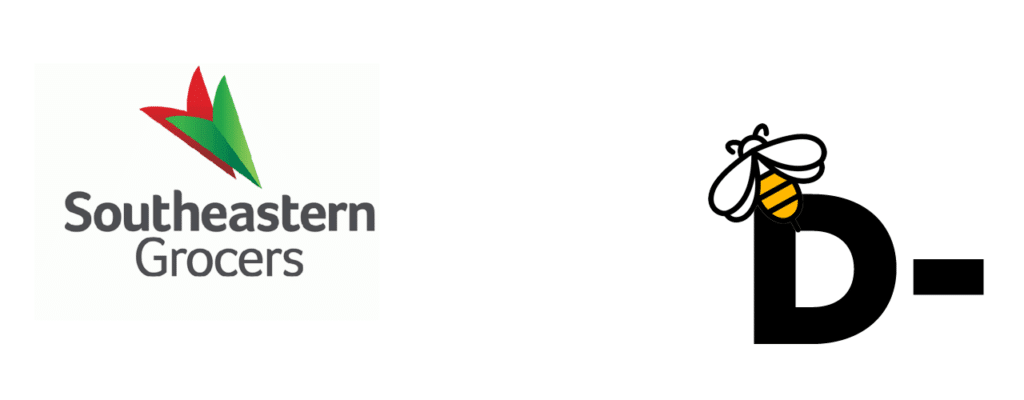
Southeastern Grocers
Summary of Southeastern Grocers grade

Pollinator Health Policy
18 out of 45 points
In August 2022, Southeastern Grocers released a pollinator health commitment for fresh produce and floral suppliers. The commitment states that the company will work with suppliers to grow products without the use of neonicotinoids, glyphosate and organophosphates and avoid replacing them with a list of other pesticides identified as harmful to pollinators. The company also commits to make all reasonable efforts to source fresh produce and floral from suppliers with vetted third party certifications that include criteria for integrated pest management. The policy also recognizes organic agriculture as a solution for pollinator health and states that the company will work to increase the amount of USDA organic produce offered in stores. Finally, Southeastern Grocers will support the expansion of pollinator habitats.
Southeastern Grocers’ policy does not include any timebound or measurable commitments to phase out pesticides of concern or expand the adoption of least-toxic practices in its food supply chains.
Commitment to reduce pesticide use
7 out of 15 points
Avoiding regrettable substitutes
5 out of 5 points
Commitment to least-toxic approaches in non-organic supply chains
1 out of 10 points
Commitment to organic
5 out of 15 points

Implementation
0 out of 90 points
Southeastern Grocers has not taken any discernible action to reduce use of pesticides of concern to pollinator and human health or expand organic farming and other least-toxic approaches in its supply chains. The actions we evaluated include: 1) tracking use of pesticides in company supply chains, 2) measurably reducing pesticide use in the past three years and publicly reporting on data, 3) supporting farmers in non-organic supply chains to shift to least-toxic approaches such as integrated pest management and regenerative agriculture, 4) measurably expanding organic offerings in the past three years, 5) demonstrating support for U.S. growers to transition to organic farming, and 6) demonstrating advocacy for public policies aimed at reducing agricultural pesticide use, protecting pollinators and supporting the expansion of organic agriculture in the U.S.
Track pesticide use in supply chain
0 out of 10 points
Measurably reduce pesticide use
0 out of 15 points
Prioritize least-toxic approaches in non-organic supply chains
0 out of 20 points
Prioritize USDA certified organic
0 out of 25 points
Support domestic organic growers
0 out of 15 points
Support public policies
0 out of 5 points

Transparency & Accountability
6 out of 21 points
Southeastern Grocers’ pollinator health policy is publicly available on its website.
Southeastern Grocers does not appear to include reduction of pesticides of concern to pollinators and human health or expansion of organic offerings in company Key Performance Indicators or other formal sustainability criteria. Southeastern Grocers does not have educational content online about pesticides or organic farming, such as a full definition of the USDA certified organic label (prohibition of synthetic pesticides and fertilizers, GMOs, antibiotics, and growth hormones, and promotion of farming methods that protect soil, water and biodiversity) or content on the value to pollinator and human health of decreasing use of toxic pesticides and expanding organic offerings.
Make policies and commitments publicly available
6 out of 6 points
Oversight
0 out of 5 points
Educate consumers
0 out of 10 points

Collaboration
5 out of 10 points
Southeastern Grocers has not communicated with Friends of the Earth in the past year. Southeastern Grocers has briefed Friends of the Earth on meaningful action the company has taken on pesticides and pollinator protection in the past three years.

Complimentary Home & Garden Policies
4 out of 9 points
Southeastern Grocers’ pollinator health policy states that the company will work with floral suppliers to grow products without the use of neonicotinoids, glyphosate and organophosphates.
Southeastern Grocers has not made a public commitment to remove neonicotinoid or glyphosate products from store shelves.
Policy for live goods
4 out of 4 points
Policy for on-shelf pesticide products
0 out of 5 points

Bonus Points
0 out of 40 points
33 Points
D-
grade